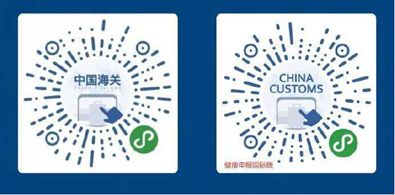Please note: while we address some country-specific updates related to the COVID-19 outbreak, the below contains information regarding global restrictions and closures as they stand today. Given the constantly changing nature of this situation, we highly recommend reviewing any global mobility inquiries on a case-by-case basis, including any consulate-specific or immigration authority resources, in "real-time" before traveling internationally. Please reach out to our Global Mobility Team in advance of any international travel.
China - Removal of Quarantine Requirement
China announced that effective January 8, 2023 foreign nationals will no longer be required to undergo quarantine upon arrival.
Starting from January 8, 2023, COVID-19 will be managed as a "Class B" infectious disease in China, and border control measures will be adjusted accordingly. China-bound travelers will need to be aware of the following:
-
Nucleic Acid Test
Travelers are required to take nucleic acid test within 48 hours before flight departure, and can only take flight when the test result is negative.
-
Health Code
Travelers are no longer required to obtain health code from the Chinese Embassy or Consulates General before departure.
-
Health Declaration to China Customs
Travelers need to declare the negative test result to China Customs by filling the Health Declaration Form either on Wechat mini-program of China Customs (scan the QR code below),or at https://htdecl.chinaport.gov.cn/htdeclweb/home/pages/healthDeclare/declare.html, or via the China Customs APP.

-
Entry Inspection
There will be no nucleic acid test when travelers enter China, and no quarantine for those whose health declaration and entry inspection produce normal results. In case of a positive test result or any symptoms (such as fever) detected by China Customs, travelers will take an antigen test. Those who test positive will need to self-quarantine.
The above measures will be effective for all passengers arriving in China after 12:00 Midnight (included) on Sunday, January 8, 2023.
Germany - Increase of Salary Threshold for Blue Card Applications
From 2023 the required salary for a blue card application will increase. The new salary threshold will be as follows:
For the general Blue Card: € 58.400 per year; € 4.866,67 per month.
For professions in the fields of Mathematics, Computer Science, Natural Sciences, Engineering, and Human Medicine (STEM): € 45.552 per year; € 3.796 per month.
As a reminder, a foreign national is eligible for a blue card if he/she can meet the following requirements:
- A recognized / comparable foreign higher educational degree (please see a listing of recognized degrees here).
- A job offer or employment contract in Germany which is appropriate for the qualification.
- A salary that meets the above listed salary requirements.
Germany - List of Accepted Travel Insurance at Consulates in India
The German Consulates in India have released an updated list of recognized travel insurance providers. Insurance is required when filing a Schengen visa application or filing a national visa application in the event the applicant wishes to arrive in Germany a few days prior to start of employment.
Please see the updated list here.
India - e-Visa for Canadian Nationals Available Again
e-Visa eligibility for Canadian passport-holders has been restored effective December 20, 2022. Canadian passport-holders who wish to visit India for tourism, business, medical treatment, or conference attendance purposes, may apply for an eVisa here .
The Netherlands - New Salary Threshold for Highly Skilled Migrant (KM)
The Dutch Immigration and Naturalization Service (IND) also announced a new threshold requirement for Highly Skilled Migrants, Graduates, and Blue Card holders.
The following new amounts are applicable for applications for local hires, assignees, or extension applications received by the Immigration Authorities (IND) on or after January 1, 2023:
- The monthly gross salary threshold for applicants of 30 years and older will be increased by nearly € 200 to € 5,008 excluding holiday allowance.
- The monthly gross salary threshold for applicants younger than 30 years will be increased by a little over € 100 to € 3.672,- excluding holiday allowance.
- The monthly gross salary threshold for graduates from a higher Dutch educational institution taking up employment within one year after graduation will be increased by less than € 100 to € 2.631,- excl. 8% holiday allowance.
- The monthly gross salary threshold for Blue Card applications will be increased by nearly € 200 to € 5.867,- excl. 8% holiday allowance.
Slovakia - National Visa Scheme
Slovakia introduced several regulations in 2022 which allow Non-EU nationals to work and be employed locally under a National visa scheme.
National Visa for Intracompany Transferees
Non-EU nationals who will be transferred within the same group of companies and who will serve in a senior capacity or who are experts with exceptional professional knowledge, skills, abilities, qualifications and experience necessary for operation or management may qualify for the ICT visa.
They will need to meet the salary requirement, which must be at least twice the average salary of an employee in the economy of the Slovak Republic during the past two years. The salary is published by the Statistical Office of the Slovak Republic on a yearly basis For 2022 the salary threshold was € 2,266 (calculated from the average salary in SR in 2020 which was € 1,133).
National Visa for Highly Qualified Foreign Nationals
Non- EU nationals who are graduates of the following categories of educational institution are eligible for the Highly Qualified visa category:
- A second cycle of higher education (university) in the Slovak Republic or in the Czech Republic,
- A higher education institution listed in Annex 1 of Regulation 521/2021 of the Government of the Slovak Republic or of an equivalent education according to the European Qualification Framework from a research institution listed in Annex 1,
- A second or third cycle of higher education and who will be employed by an employer in the Slovak Republic in the occupations listed in Annex 2 of Regulation 521/2021 of the Government of the Slovak republic.
Processing times range from one to three months.
The content of this article is intended to provide a general guide to the subject matter. Specialist advice should be sought about your specific circumstances.

